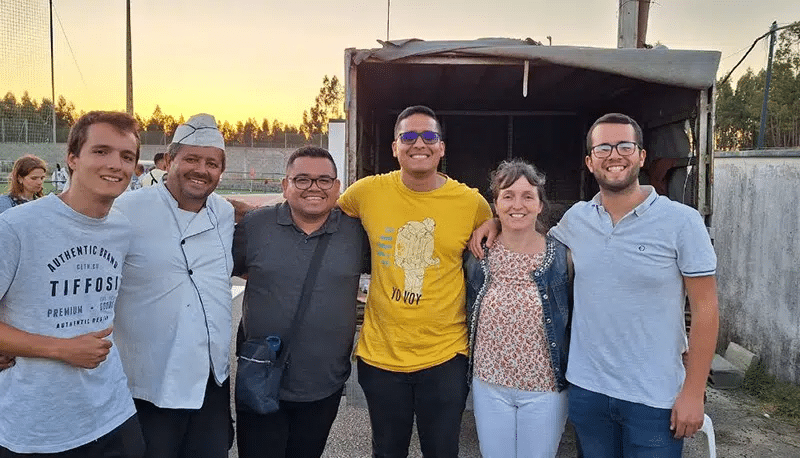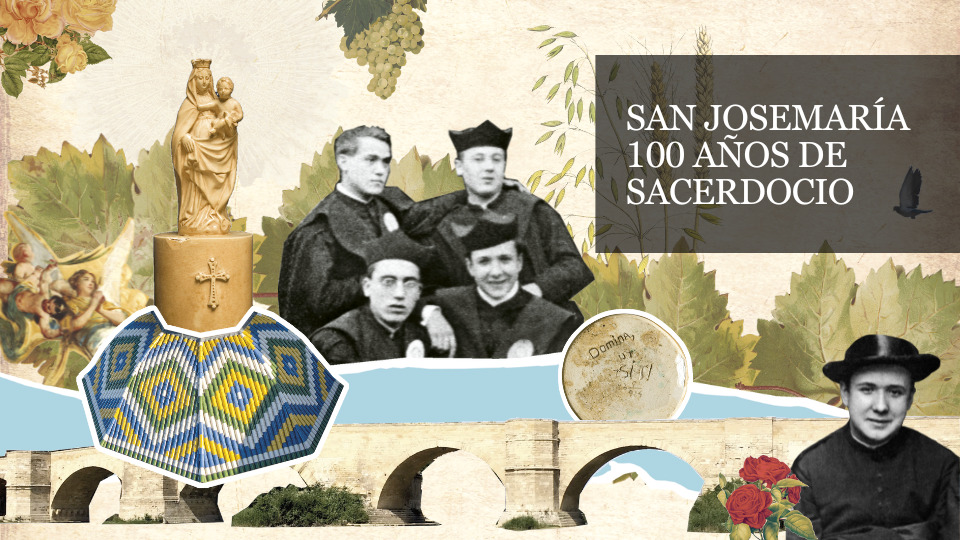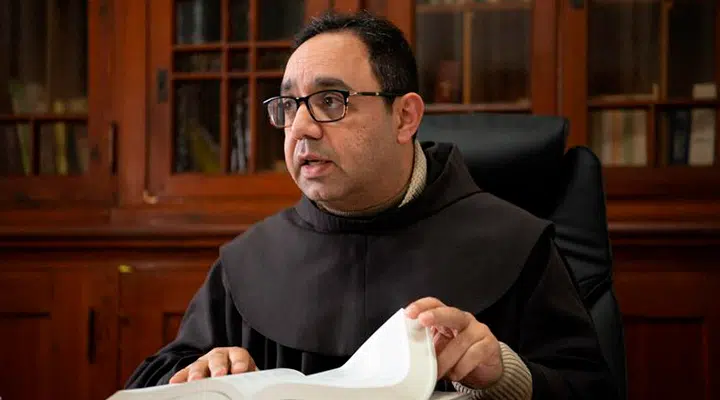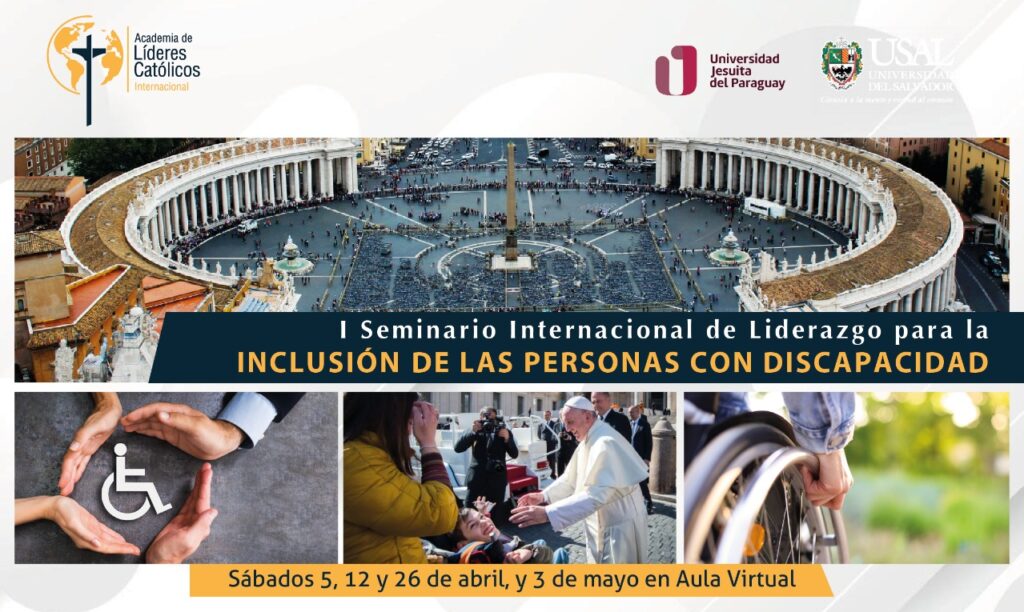«Although it costs, Lord, my life is yours»
It's not easy to say yes to God

Jorman was left alone in Venezuela after his sisters and his parents left to Colombia. But, before his departure and with infinite love, his parents spent one last Christmas with him. They also accompanied him when he entered the propaedeutic seminary of the diocese of Cabimas. Jorman Rafael Cáceres was 22 years old at the time and was received with open arms at the seminary of his diocese.
Jorman is the only male child in his family, the youngest of three sisters. His parents had decided to emigrate from Colombia when they were surprised by his intention to enter the seminary to be a priest. They told him that, yes, he was staying in Venezuela, and they would also remain in the country. “But I told them that it was best for them to join my sisters in Colombia because they were going through a delicate economic situation.”
It’s not easy to say yes to God
His family is now very proud of him. They are Catholics and, although it came as a surprise to them at first, they supported him in his decision, convinced that saying yes to God is not an easy answer. But Jorman had not always been so clear.
Until entering the seminary, he went through several stages. His vocational process was progressive. He began as a child, when he participated in the pontifical works of his country, in Missionary Childhood. In his younger years, he became involved in Joven Misión, where he was the diocesan coordinator in youth ministry.
In Joven Misión, he felt that God wanted him to serve Him, to leave everything for Him, but he did not want to hear His voice. So, to drown out the voice of God, he preferred to meet some girls, something like going from girlfriend to girlfriend. Until he shared with one of them his concern about entering the seminary. If he wasn’t sure of his decision, they would get back together. She supported him, unconditionally, a very important gesture for Jorman.
The effects of the pandemic
During the pandemic, God’s voice resonated with more presence in his heart. “The stillness in my house, with my family, made me restless inside. I had left the whirlwind of my life behind and had time and calm to listen to God. It was then that I decided to start my vocational process online.”
Later, during a vocational coexistence, he continually repeated that God’s will, will be done: “I have avoided you a lot, Lord, but even if it costs me, my life is yours.” It was a period of certain doubts that were dispelled when the rector of the seminary asked him if he finally wanted to train as a seminarian. “I said yes, and I imagined María’s yes. Then, the whole earth paused, there was total silence around me.”
“I only count on your strength”
The first year of seminary was very hard. Sadness and doubts assailed him. He was very tired and felt very far from his family. In a Holy Hour he surrendered before God: “Let your Will be done, I have no strength, I only count on yours.” He asked for a sign. He needed to know if God really wanted him to be a priest.
A few days later, the Vicar General of the diocese told him: “The bishop has chosen you to go study at the University of Navarra and stay at the Bidasoa Seminary in Spain.” And at that moment, the light erased his anguish. He was shocked. “I didn’t see myself capable of studying in Spain, but it came to my mind that this was the sign that he had asked for from God. So I accepted.”
God’s dream
Now, at 25 years old, he is at the Bidasoa International Seminary fulfilling his dream and the dream that God has for me. “God has dreams for each one of us, and we just have to accept and receive them.”
He is convinced that his yes to God and the comprehensive training that he is receiving in Pamplona will contribute to helping the people of Venezuela. «In my country, the Catholic Church is mediating as a channel for dialogue in the face of the polarization of the people and institutions. But, above all, with social pastoral care and accompanying the faithful so that they do not see themselves helpless in their struggles.
The priests of the 21st century
The young priests of the 21st century have a very specific mission, each one in his destiny. For Jorman, they must be “creative and ingenious, with very good doctrinal training and a deep interior life” that is capable of transmitting what they have received with new methods and forms.
“I think the main difficulties for a priest today lie in finding effective ways to connect with people in an increasingly secularized and digitalized society.”
Help train diocesan priests and seminarians from Venezuela to serve the Church around the world
Related

Prayer for Vocations, the Focus of the Centenary of St. Josemaría’s Priestly Ordination
Exaudi Staff
27 March, 2025
8 min

Father Marwan: “The Holy Land needs pilgrims. We need their consolation”
Fundación CARF
27 March, 2025
4 min

Large families are once again concerned about the lack of support such as school lunch grants or access to preschools
Exaudi Staff
26 March, 2025
1 min

Call for Applications to the First International Leadership Seminar for the Inclusion of Persons with Disabilities
Exaudi Staff
25 March, 2025
2 min
 (EN)
(EN)
 (ES)
(ES)
 (IT)
(IT)

